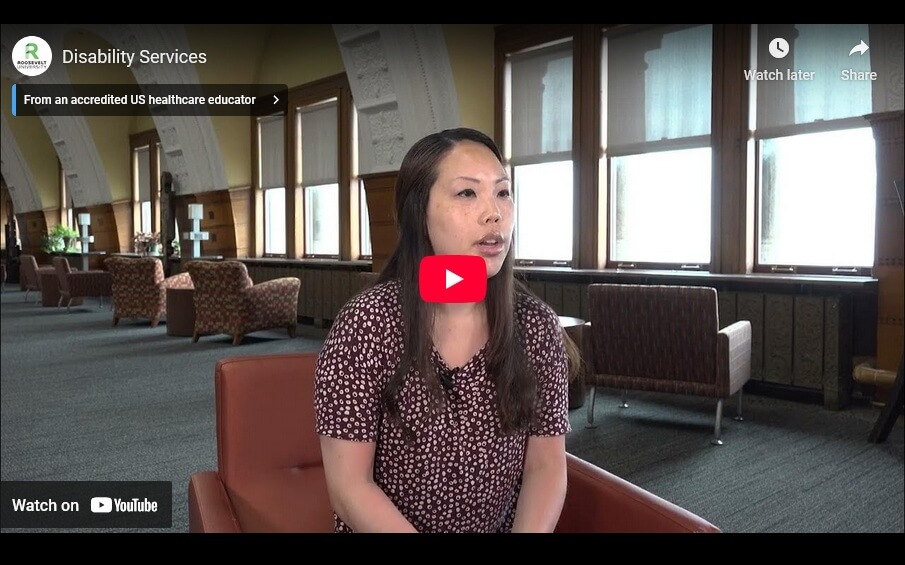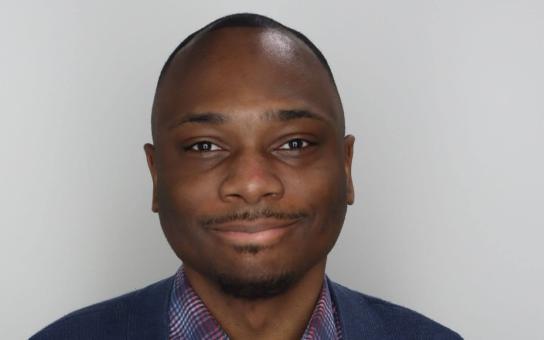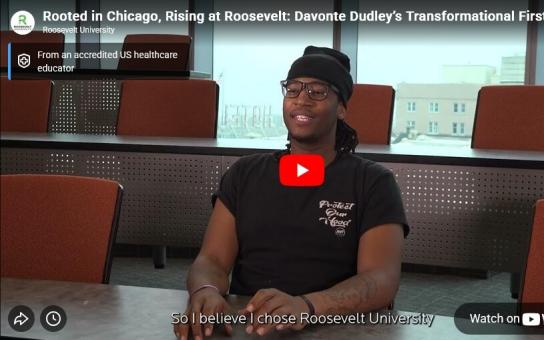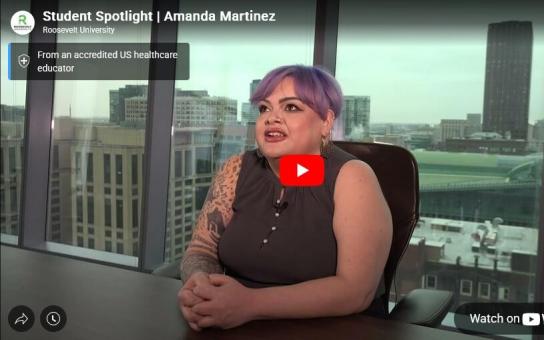
When Roosevelt University was established in 1945 with the mission to expand educational accessibility, its founders were focused on creating a productive learning environment for students regardless of their race, religion or economic background. Roosevelt still adheres to that mission, but we now have a fuller understanding of the obstacles that students face beyond what can be marked on a college application.
Nearly 21% of American undergraduate students report a disability, and many of those disabilities are considered “invisible.” These include ADHD, autism, hearing issues and dyslexia, and may require a specific accommodations. Roosevelt is committed to student success no matter their invisible disability, and the Disability Services Office led by Nicole Yoon is dedicated to making your college experience as accessible as possible.
“I and my team are incredibly committed to making sure that every student that’s admitted to Roosevelt can establish a learning environment and course-load that gives them the tools for a successful career but also imparts the information in the way that works best with their learning style,” says Yoon. “You’re welcome here no matter your disability.”
Part of Roosevelt’s Learning Commons—a team dedicated to student academic success with tutoring services and testing accommodations—the Disability Services Office works directly with the University’s professors to develop specialized syllabi and testing conditions if you need time to complete your assignments and projects. If you fill out the “Request for Accommodations” form online, the Disability Services team will quickly be in contact to plot a plan for academic success. The system is intuitively designed and easy to use, and the team has worked with individuals with requests ranging from an American Sign Language (ASL) interpreter to note-takers present in class. The office can also let professors know if you’re using a recorder to suit your learning style.
Most importantly, Disability Services wants students to understand that their disability actually contributes to Roosevelt’s rich learning environment. Your approach to learning can encourage fellow classmates to view the material through different perspectives and to grapple with explaining the material with written instead of verbal presentations.
“Roosevelt was founded on the idea of educational accessibility for all, and while our founders were viewing accessibility from the perspective of race or gender, we understand that disabilities and learning style are a massive part of maximizing a college education now,” says Yoon. “When students come to our office, you will feel welcomed and secure that you can access the incredible knowledge from our staff and fellow students without feeling you’re disadvantaged because of the different way you process information.”


